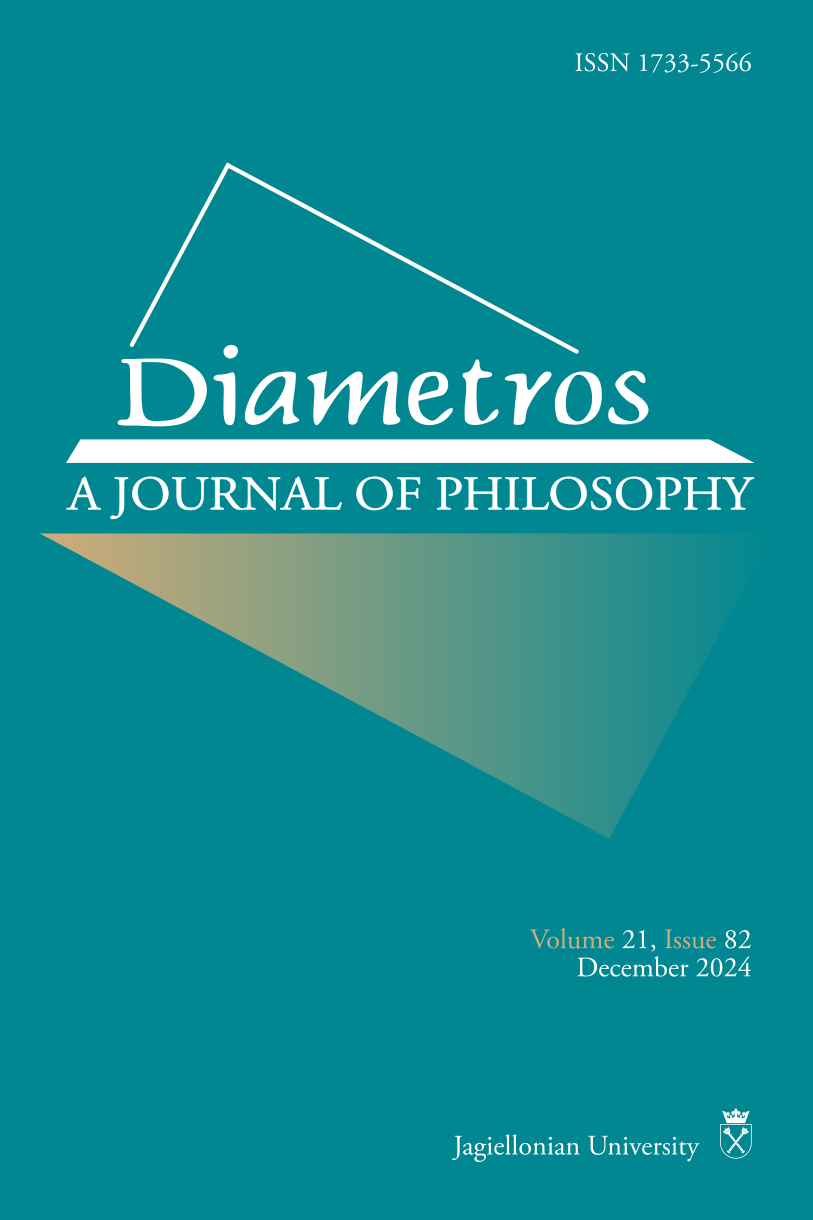Expert Authority and Objectivity: Why the Public is Not Equipped to Adjudicate Expert Disagreement
Main Article Content
Abstract
Giubilini, Gur-Arie, and Jamrozik (2025) argue that the non-expert public’s appraisal of someone as an expert is necessary for whether they have expert authority. According to them, expertise is contingent on whether someone possesses some “set of epistemic features that warrant trusting” them “as an expert.” Whether someone has these features depends on whether the public believes that person is reliable. This is partly because the public is vested in domains that affect their interests and, therefore, whether putative experts satisfy their responsibility to fulfill those interests. Here, I offer three objections to their argument, addressing their concerns with objective accounts of expert authority, the lay public’s ability to evaluate expert claims, and the adequacy of transparency for facilitating trust. I close by acknowledging the difficult epistemic position of non-experts but point toward accounts that address the authors’ concerns while nonetheless preserving the objectivity of expert authority.
Article Details
Section

This work is licensed under a Creative Commons Attribution 4.0 International License.
By submitting his/her work to the Editorial Board, the author accepts, upon having his/her text recommended for publication, that Diametros applies the Attribution 4.0 International (CC BY 4.0) license to the works we publish. Under this license, authors agree to make articles legally available for reuse, without permission or fees. Anyone may read, download, copy, print, distribute or reuse these articles without asking prior permission from the publisher or the author, as long as the author and original source are properly cited. The author holds the copyright without any other restrictions. Full information about CC-BY: https://creativecommons.org/licenses/by/4.0/legalcode.
How to Cite
References
Almassi B. (2012), “Climate Change, Epistemic Trust, and Expert Trustworthiness,” Ethics and the Environment, Special Issue on Climate Change, 17 (2): 29-49.
Bennett M. (2020), “Should I do as I’m told? Trust, Experts, and COVID-19,” Kennedy Institute of Ethics Journal 30 (3): 243-263.
Brennan J. (2020), “Can Novices Trust Themselves to Choose Trustworthy Experts? Reasons for Reserved Optimism,” Social Epistemology 34 (3): 227-240.
Charlton, J.I. (2000), Nothing About Us Without Us: Disability, Empowerment, and Oppression, University of California Press, Oakland.
Collins H. (2014), Are We All Scientific Experts Now? Polity Press, Cambridge.
Collins H., Evans R. (2007), Rethinking Expertise, University of Chicago Press, Chicago.
Constantin J., Grundmann T. (2020), „Epistemic authority: preemption through source sensitive defeat,” Synthese 197 (9): 4109-4130.
Csikszentmihalyi M. (1996/2013), Creativity: Flow and the Psychology of Discovery and Invention, HarperPerennial, New York.
Diels H., Kranz W. (1951–1952), Die Fragmente der Vorsokratiker, sixth edition, Weidmann, Berlin.
Eyal G. (2019), The Crisis of Expertise, Cambridge, Polity Press, Cambridge.
Gawande A. (2009), The checklist manifesto: How to get things right, Picador, New York.
Giubilini A., Gur-Arie R., and Jamrozik E. (2025), “Expertise, Disagreement, and Trust in Vaccine Science and Policy. The Importance of Transparency in a World of Experts,” Diametros 22 (82): 7-27.
Goldman A. (2001), “Experts: Which Ones Should You Trust?,” Philosophy and Phenomenological Research 63 (1): 85-109.
Howley K. (2024), “Andrew Huberman’s Mechanisms of Control,” New York Magazine, https://nymag.com/intelligencer/article/andrew-huberman-podcast-stanford-joe-rogan.html. [Date accessed: 12 February 2025]
JCVI (Joint Committee on Vaccination and Immunisation) (2021), “JCVI Issues Updated Advice on COVID-19 Vaccination of Children Aged 12 to 15,” URL = https://www.gov.uk/government/news/jcvi-issues-updated-advice-on-covid-19-vaccination-of-children-aged-12-to-15 [Accessed 22 February 2025].
John S. (2018), “Epistemic trust and the ethics of science communication: against transparency, openness, sincerity and honesty,” Social Epistemology 32 (2): 75-87.
Johnson, E. (2016), “Disability, Medicine, and Ethics,” AMA J Ethics 18 (4): 355-358.
Lassiter C. (2023), “Reading the Signs: From Dyadic to Triadic Views for Identifying Experts,” Social Epistemology 38 (1): 98–109.
Millstone E., Zwanenberg P. (2000), “A crisis of trust: for science, scientists, or for institutions?,” Nature Medicine 6 (12): 1307-08.
Nichols T. (2017), The Death of Expertise: The Campaign against Established Knowledge and Why It Matters, Oxford University Press, New York.
Noveck B.S. (2015), Smart Citizens, Smarter State, Harvard University Press, Cambridge, MA.
Ohlheiser A.W. (2024), “The misleading information in one of America’s most popular podcasts,” Vox, May 2, https://www.vox.com/technology/24127540/huberman-lab-science-misleading-information-andrew-huberman-podcasts-joe-rogan-health-medicine [Accessed 22 February 2025].
Pamuk Z. (2021), Politics and Expertise: How to Use Science in a Democratic Society, Princeton University Press, Princeton.
Rakel, H. (2004), “Scientists as Expert Advisors: Science Cultures Versus National Cultures?,” [in:] E. Kurz-Milcke, G. Gigerenzer (eds), Experts in Science and Society, Klewer Academic, New York: 3-25.
Watson, J.C. (2018), “The Shoulders of Giants: A Case for Non-Veritism about Expert Authority,” Topoi 37 (1): 39-53.
Watson, J.C. (2019), “What Experts Could Not Be,” Social Epistemology 33 (1): 74-87.
Watson, J.C. (2021), Expertise: A Philosophical Introduction, Bloomsbury Academic, London.
Watson, J.C. (2022a), A History and Philosophy of Expertise: The Nature and Limits of Authority, Bloomsbury Academic, London.
Watson, J.C. (2022b), “Epistemic Neighbors: Trespassing and the Range of Epistemic Authority,” Synthese 200 (408).
Wolff, R.P. (1970), In Defense of Anarchism, Harper & Row, New York.
Zagzebski L. (2012), Epistemic Authority: A Theory of Trust, Authority, and Autonomy in Belief, Oxford University Press, New York.
